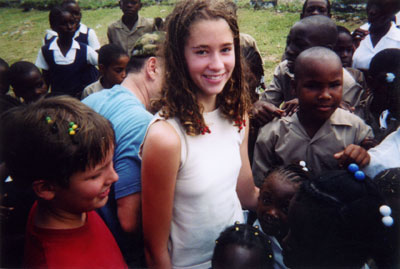All Nonfiction
- Bullying
- Books
- Academic
- Author Interviews
- Celebrity interviews
- College Articles
- College Essays
- Educator of the Year
- Heroes
- Interviews
- Memoir
- Personal Experience
- Sports
- Travel & Culture
All Opinions
- Bullying
- Current Events / Politics
- Discrimination
- Drugs / Alcohol / Smoking
- Entertainment / Celebrities
- Environment
- Love / Relationships
- Movies / Music / TV
- Pop Culture / Trends
- School / College
- Social Issues / Civics
- Spirituality / Religion
- Sports / Hobbies
All Hot Topics
- Bullying
- Community Service
- Environment
- Health
- Letters to the Editor
- Pride & Prejudice
- What Matters
- Back
Summer Guide
- Program Links
- Program Reviews
- Back
College Guide
- College Links
- College Reviews
- College Essays
- College Articles
- Back
Friends or Teachers
Would you like your teachers to know as much about you as your best friend? Most people would agree that they would like to keep their social lives separate from school. Too often, high school teachers and students cross over the boundary and merge their professional and social lives. This kind of communication can end dangerously for both students and teachers. Students and teachers should not become friends on social media.
Not limiting the interaction between teachers and students on social media can destroy the student teacher relationship. As teachers and students gain the ability to maintain constant contact, they can turn a professional relationship into an intimate one. Charol Shakeshaft, who studies sexual misconduct, explained that social media “makes it very easy for teachers to form intimate and boundary-crossing relationships with students” (Preston). The Washington Post has even claimed that social media “provided an open gateway for classroom sexual predators” (Abbot). Students need protection from this danger that social media can cause. In addition, teachers may start to grade students based on what happens outside of school. The normal student teacher relationship stops with the school day, but with social media teachers can know what happens after school hours. Some teachers may start to look at students differently after learning what they choose to do in their free time. Teachers can unknowingly take this into account when grading. Jon Felske, a superintendent, suggests solving this problem by “keeping work work -- and keep private your personal life” (Preston). Lastly, as students learn what teachers do outside of school, they may lose the respect necessary for a healthy student teacher relationship. School administrators have started to become concerned about “teachers' revealing too much information about their private lives” (Preston). “Other teachers simply use questionable judgment when posting,” according to Chuck Collins, a school administrator. Students can surely lose respect for their teachers if they do not agree with what they do outside of school. This change in the student teacher relationship can affect the ability of students to learn. In all, social media can change the once strong student teacher relationship into an intimate, judgmental, and disrespectful one.
Many argue that allowing students and teachers to communicate through social media allows for a more enhanced and engaging classroom, in spite of the imperative evidence which shows how negatively this communication can affect the student teacher relationship. In reality, the constant communication allowed by social media does give students more one on one time with teachers; however, this also allows boundary crossing habits to form. This new relationship can be dangerous to all involved. The safety of students and teachers should be worth more than after school homework help.
Denying the ability for teachers and students to become friends on social media will restore the student teacher relationship; therefore, teachers and students will maintain a professional relationship, student will respect teachers, and teachers will not judge students for their lives outside of school. Because everyone wants to maintain the student teacher relationship, student and teacher should not become friends on social media. Something to consider.

Similar Articles
JOIN THE DISCUSSION
This article has 0 comments.
